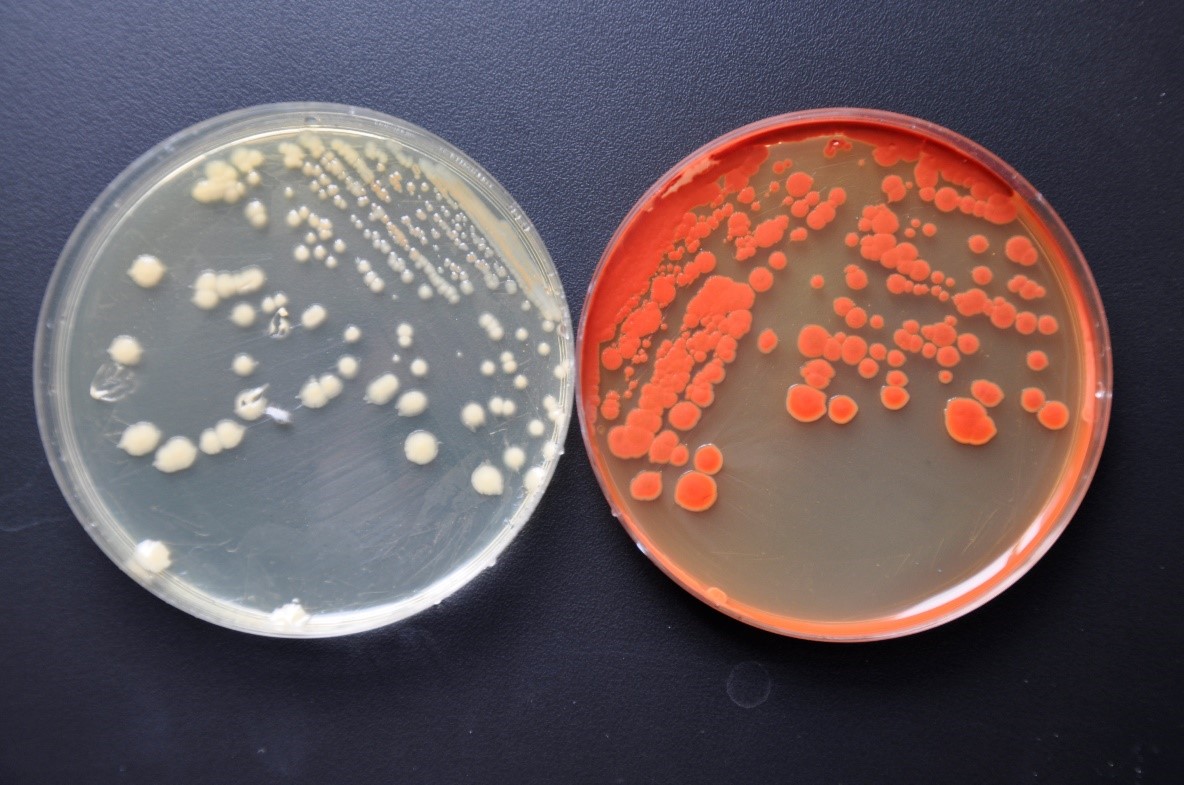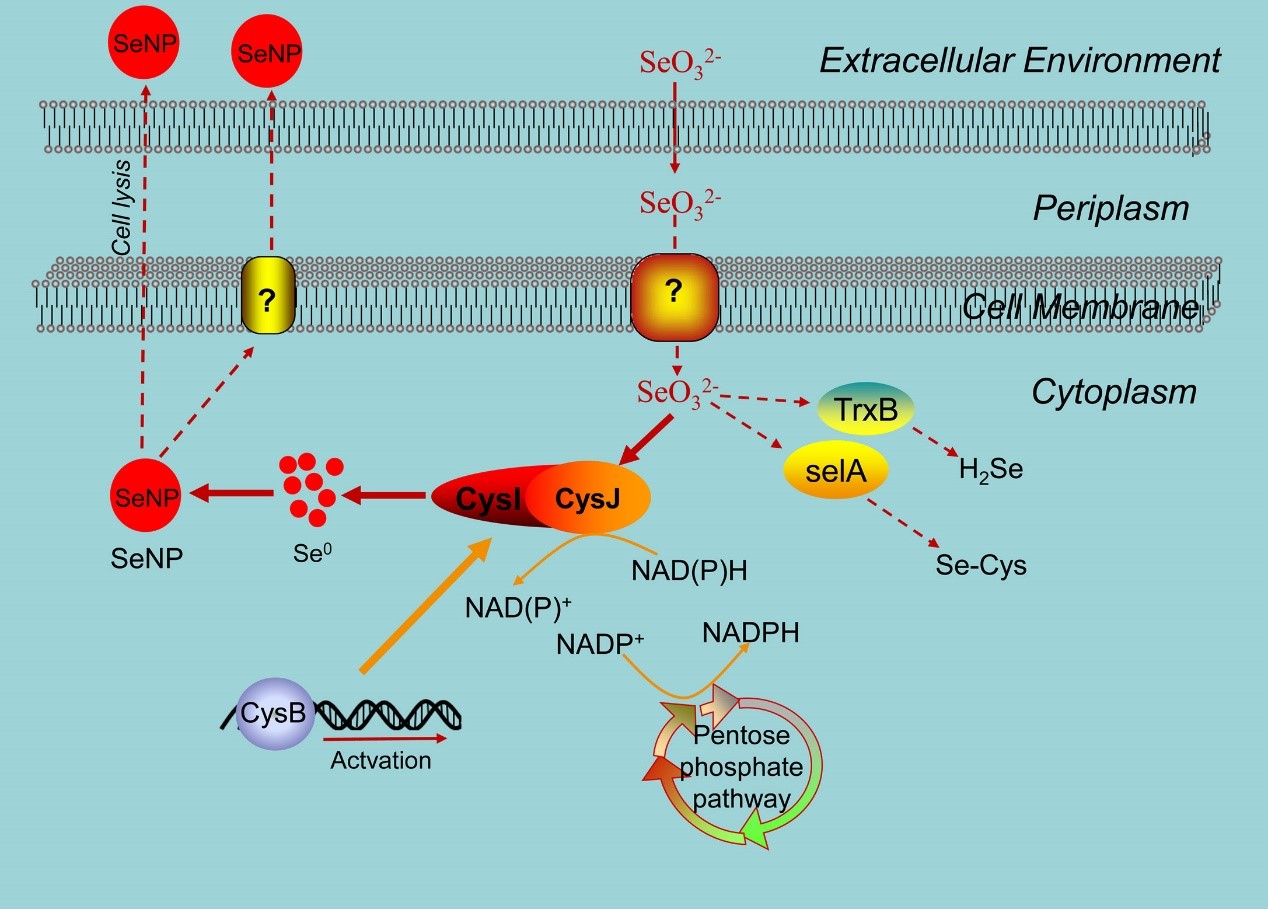Recently, a research team led by Prof. WU Lifang from Institute of Intelligent Machines, Hefei Institutes of Physical Science (HFIPS) isolated a bacterial strain that showed extreme tolerance to selenite. Besides, they discovered In vivo sulfite reductase-mediated selenite reduction for the first time.
Selenite in the environment is extremely biotoxic. Hence the biotransformation of selenite into selenium nanoparticles (SeNPs) by microorganisms is gaining increasing interest. However, the relatively low selenite tolerance and slow processing by known microorganisms limit its application.
In this study, a highly selenite-resistant strain (up to 800 mM) was isolated from coalmine soil and identified as Providencia rettgeri HF16. Remarkably, 5 mM selenite was entirely transformed by this strain within 24 h, and SeNPs were detected as early as 2 h of incubation, which is a more rapid conversion than that described for other microorganisms.
To push the study further, the team analyzed iTRAQ-based proteomics and tested key enzyme activity to verify the possible mechanism of selenite detoxification and SeNP biosynthesis by isolating HF16. They surprisingly found the first time that a bacterial strain was capable of transforming toxic selenite into Se0 efficiently via a sulfite reductase-mediated selenite reduction pathway with NAD(P)H serving as the electron donor, shedding new light on its molecular mechanism.
Considering the high selenite resistance and robust biotransformation capacity, HF16 could constitute a versatile selenite bioconversion platform suitable for different biotechnological applications.
This research was supported by National Natural Science Foundation of China, the Science and Technology Service Program of Chinese Academy of Sciences, and Natural Science Foundation of Anhui Province.

Images of cultures of strain HF16 grown in absence (left) and presence (right) of 5 mM selenite. The red colony color indicates selenite reduction and the formation of elemental selenium (Se0) (Image by HUANG Shengwei)

Contact:
ZHAO Weiwei
Hefei Institutes of Physical Science (http://english.hf.cas.cn/)
Email: annyzhao@ipp.ac.cn
 Tel: +86-551-65591206
Tel: +86-551-65591206
 Fax: +86-551-65591270
Fax: +86-551-65591270
 Emai: zhous@hfcas.ac.cn
Emai: zhous@hfcas.ac.cn
 350 Shushanhu Road
350 Shushanhu Road